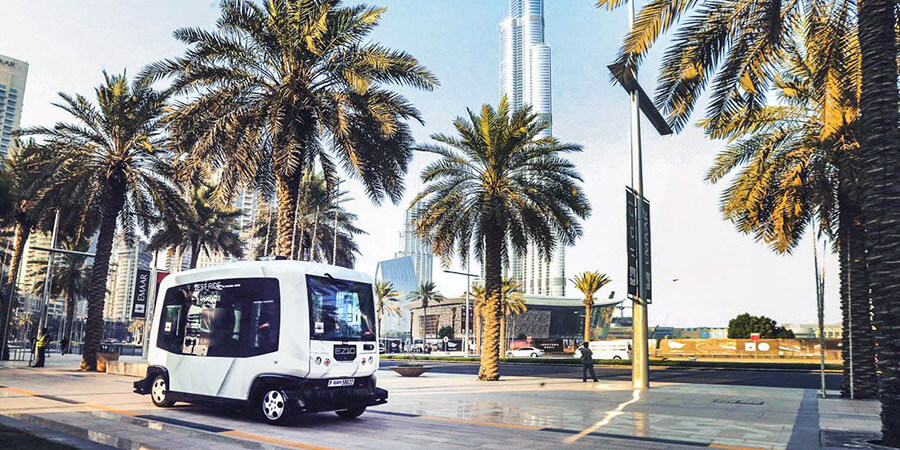The United Arab Emirates is among the top 10 countries in the world when it comes to readiness to accommodate driverless vehicles, revealed KPMG's Autonomous Vehicles Readiness Index (AVRI). The study, which evaluates the preparedness of countries globally, places the UAE at number eight, ahead of South Korea and New Zealand.
The KPMG AVR Index, a first-of-its-kind initiative, highlights global best practices to help countries accelerate their adoption of autonomous transport and capacity for adapting autonomous driving technology, as well as highlights the progress achieved in making driverless cars a reality. The Index places the UAE after the Netherlands, Singapore, the United States, Sweden, the United Kingdom, Germany, and Canada.
The study carefully evaluates every country's ability according to four pillars: policy and legislation; technology and innovation; infrastructure; and consumer acceptance.
Each of these pillars considers a number of variables that reflect the wide range of factors that can impact a country's autonomous driving readiness – from the availability of electric vehicle charging stations, to autonomous transport technology R&D, the public's willingness to adopt the technology, and the regulatory environment.
The Netherlands, which earned first place on the Index, ranks consistently high-in the top four across all four pillars-with strengths including widespread acceptance of electric cars and a high density of charging stations; a robust telecommunications network, vital for directing AVs; and large-scale AV road tests planned.
As the world's most innovative countries have started the journey to make driverless cars a reality, the UAE consolidated its dominance as number one among the 20 countries for road quality -- a critical factor in infrastructure readiness.
At number six on the policy and legislation pillar, the UAE is also credited for having a dedicated and autonomous function within its transport department, for quality of regulation and for government capability in KPMG's Change Readiness Index, which assessed countries' ability to manage change and cultivate opportunity.
The AVRI ranking reaffirms the UAE's vision to become one of the most technologically advanced nations on the planet. As part of a wider vision, some specialized projects, such as the Dubai Autonomous Transport Strategy, have been unveiled, under which one quarter of the cars on Dubai's roads is set to become driverless by 2030. The past year has also witnessed the successful testing of the world's first urban aerial taxi in Dubai.
This strategy is expected to bring AED 22 billion in annual economic revenues via a reduction of transport costs, carbon emissions and accidents, and hundreds of millions of hours wasted in conventional transportation.
"The UAE's desire to excel in the field of technology-led innovation, which it overlays on its existing 'hard' infrastructure will ensure that the nation is at the vanguard of the urban autonomous mobility," said Ravi Suri, Partner and Global Head of Infrastructure Finance, KPMG Lower Gulf.
The KPMG AVR Index reveals that a country's economic maturity can be demonstrated by its preparedness for autonomous vehicles. Looking deeper, however, the AVRI highlights some consistent attributes among the most prepared countries. These include public authorities' involvement in supporting AV development, roads and mobile network infrastructure, and private sector investment and innovation.
"The learnings from its successful implementation of self-driven vehicles and its intention to introduce flying taxis will ensure that the UAE maintains its leading position in autonomous mobility. By ensuring its investments in the Internet of Things, data and analytics and artificial intelligence, and reinforcing its commitment to smart city transformation, the UAE epitomizes an innovation culture and will aim to lead the world in this field," Suri concludes.











